The secrets of Yorkshire’s oldest youth club
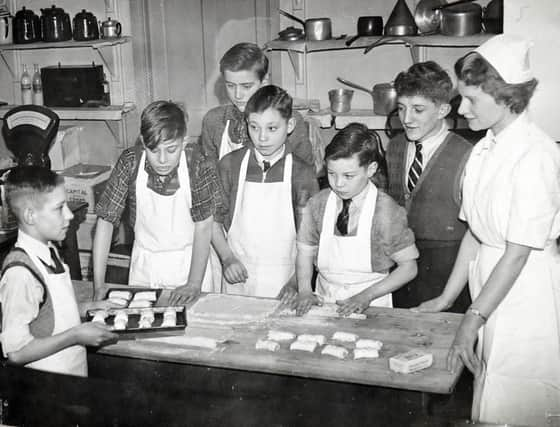

THE youth club was a rite of passage for children in the 1960s and 70s. It’s where we hung out, made friends, played sport, danced, snogged and bagged a seat on free trips.
Now these clubs are a rarity. Funding cuts have forced the closure of many, while others have fallen victim to the idea of shutting the buildings and sending youth workers on to the street to “engage with the kids”.
Advertisement
Hide AdAdvertisement
Hide AdThat failed miserably and those misguided policy-makers who thought young people didn’t want “youthies” any more were wrong. The proof is in The Hunslet Club, one of the oldest youth clubs in the country.
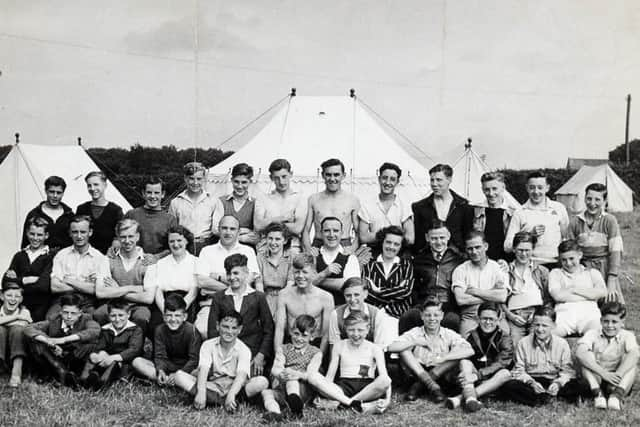

It celebrates its 75th anniversary this month and is busier and more successful than ever.
On a dark and wet Wednesday night in an area deemed one of the most deprived in Leeds, the lights of the all-weather practice pitches are a beacon.
Inside, the place is buzzing. In the reception/chill-out area there are kids aged from six to 17 having shouted conversations above the laughter and banter. At the back of the room is the rhythmic sound of a table tennis game.
Advertisement
Hide AdAdvertisement
Hide AdFurther inside the building lies a maze of rooms and sports halls hosting everything from dance and singing classes to gymnastics, boxing and football. There’s also a gaming room with PlayStations and Xboxes.
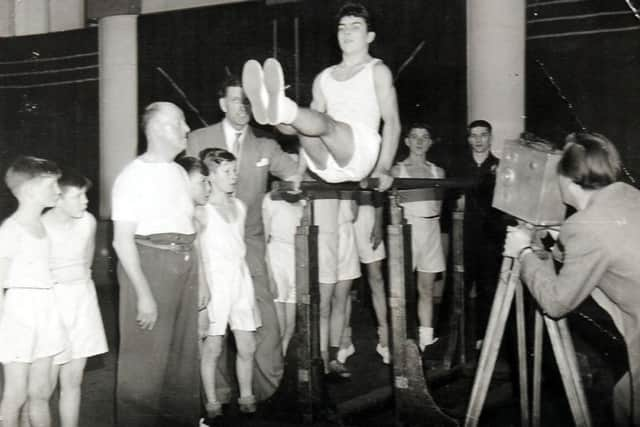

The activities cost just £1.50 a session, a jaw-dropping discount on the going rate that begs the question “how do they do it?”, especially when the coaches are the very best in the business.
Dennis Robbins, a down-to-earth main man with the grandiose title of chief executive officer, gives me a guided tour and explains, or at least he tries to. We are constantly interrupted by back slapping and shouts of “All right Dennis?” He’s popular, affable and also supremely efficient, thanks in part to his time in the Royal Navy and the police force.
“We keep the cost down so it’s inclusive,” he tells me. “Everyone has a chance to try things out, regardless of income. Some have gone on to be professional footballers, rugby players and boxers and one girl has just got into the Northern Ballet.”
Advertisement
Hide AdAdvertisement
Hide AdDennis, 53, attended the club as a child and learned to box there. He later volunteered as a coach before taking over the day-to-day management 15 years ago. Since then, with the help of the local community, the trustees and volunteers, the number of children who use the facility has risen from 300 to 2,600.
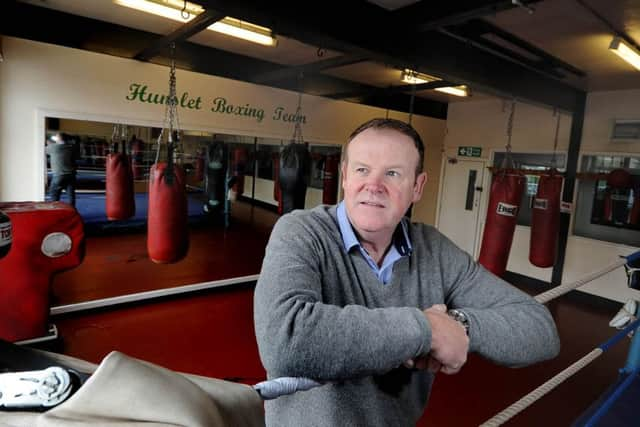

Rugby legend Jason Robinson is a member and patron, and one of the nation’s best young boxers, 14-year-old Douglas Pattison, trains here, following in the footsteps of his father, Levi, a former champion who also trained at the club.
“It’s brilliant,” he says. “I’ve been going to the club since I was five and it’s great. It’s got the best boxing gym in Leeds and the best coaches. I’d never have got this far without them.”
Amid the controversy over Kids Company, which closed after accusations it squandered public money, The Hunslet Club is a shining example of how an independent youth organisation should be run. It is still governed by a board of trustees, who are senior businesspeople, and managed by a combination of paid staff and volunteers.
Advertisement
Hide AdAdvertisement
Hide Ad“Being independent saved us, especially from the trend for detached youth work,” says Dennis. “People recognise now that kids need buildings, somewhere to go and meet each other, have fun, take part in activities. But these places are rare.”
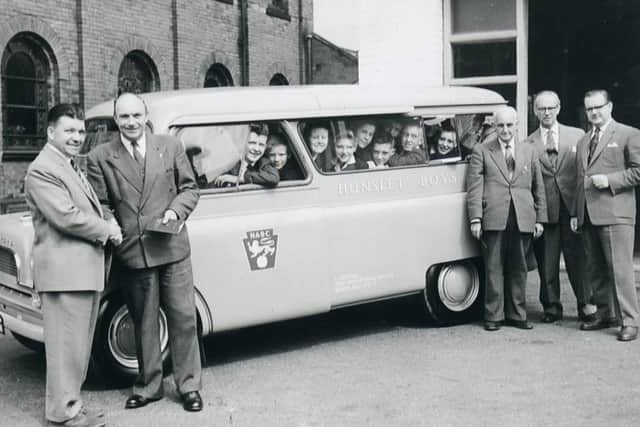

Funding is from a complex combination including grants, support from Barclays Spaces for Sport and Sport England, and generous donations from businesspeople and members of the community.
“This is an area where there is a lot of need but the people who live here are the most generous,” says Dennis. “They fund-raise, they bring their kids here. They keep this place going.”
It has all helped to pay for extensions, improvements and 3G sports pitches. But The Hunslet Club’s own income-generating schemes have made it truly sustainable, and they all have social responsibility at their heart.
Advertisement
Hide AdAdvertisement
Hide AdMindful that the club was busy at night and quiet during the day, the board started a sports group one day a week for pupils excluded from school. It was a success and the pupil referral units asked if they could offer anything else. They now run vocational courses for children aged between 14 and 16.
A vehicle maintenance course opened in 2003 and now there are joinery, bricklaying and plumbing workshops plus hairdressing and beauty salons where young people can study for a BTEC qualification.
There are umpteen stories of young people getting back on track and going on to apprenticeships and jobs. One, a child in care who had been written off by mainstream education, is now running their own business. Some of the money from the education venture was used to create two bars so that the club can be used for functions, which also generates revenue and fulfils a need for a low-cost events venue.
“There are about 180 young people in the club during the day now and we’re open seven days a week, delivering 96 activities,” says Dennis. “Any money we make is reinvested back into the club.”
Advertisement
Hide AdAdvertisement
Hide AdThe latest project is even more ambitious. The club recently bought a derelict property in Beeston as a buy-to-let. The idea was to use it as on-site training for its construction skills students then let it out at an affordable rent to someone in need of a home.
The new resident is Sue Draper and her 13-year-old son Luke. She lived with her parents, unable to find a council property or the deposit and bond for a private let. The Hunslet Club house is her first home.
“Buying property was a big step for a small charity like ours but the social value of it has been amazing,” says Dennis, who has sourced a second property and hopes to have 10. “The young people who worked on it were happy to get some experience, we’ve improved someone’s life and we are getting a 7.5 per cent return on our investment, as well as having an asset.”
Meanwhile, Leeds City Council has asked the club to set up a replica in another area of the city. Dennis is keen to try but worries whether the success can be repeated given that the original club’s foundations are built on generations of loyalty.
Advertisement
Hide AdAdvertisement
Hide Ad“Creating something like this takes time and it’s not just the ideas, it’s the people,” he says. “Most of The Hunslet Club staff and volunteers are from the area and many were members of the club as children.”
Youth worker and former professional boxer Darren Rhodes, 40, sums it up when he says: “This club runs on passion for the place. I lived in Belle Isle and I came here as a kid. I did rugby, boxing and went to the youth club. The kids’ camps they ran every year were my holiday. Almost everyone who works here has that kind of connection. That’s why it works. We’re like an extended family.”
Wartime roots of club that thrived
The Hunslet Club was set up in 1940 by a Dr John Wyllie at a time when dads were at war and mums were out at work. With few parental controls, anti-social behaviour was becoming a problem in the area and he thought a boys’ club to provide “recreation activities, warmth and comradeship” was the answer.
After the old chapel they had rented for years was deemed ripe for redevelopment, the trustees decided to build dedicated premises on Hillidge Road, South Leeds, which opened in 1971. By this time it was for boys and girls.
The Hunslet Club is staging a 75th anniversary reunion and is looking for former members to come along and/or contribute their memories. Contact 0113 271 6489 or email [email protected].